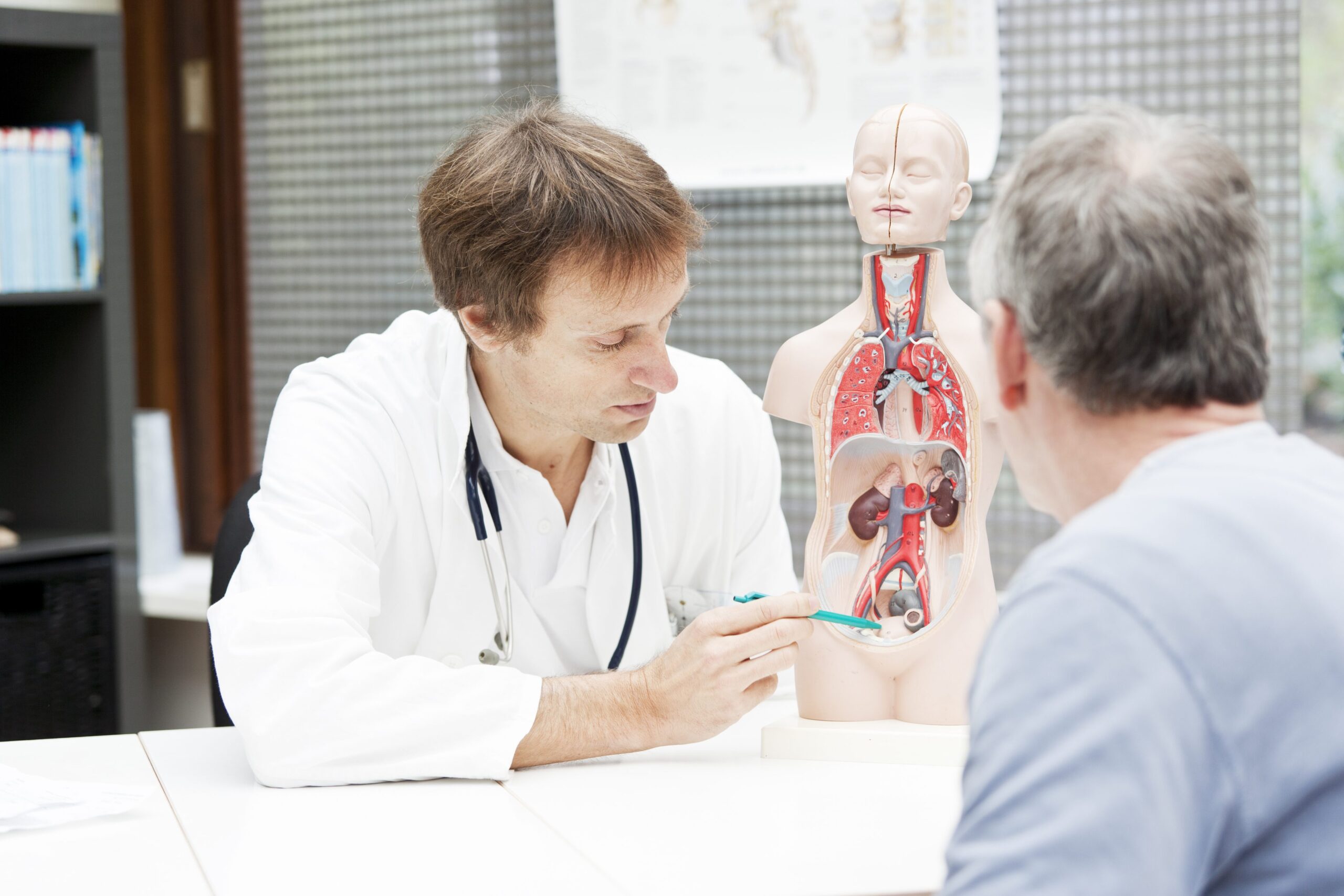The prostate is a small walnut-sized gland that secretes seminal fluid rich in various nutrients. Thus, it promotes sperm motility and plays an important role in male reproduction. The gland is located just below the bladder.
There are four types of prostatitis:
- Acute prostatitis– caused by acute infection and has a sudden start with moderate to severe symptoms.
- Chronic prostatitis– it tends to reoccur after treatment, though the symptoms may be less severeand may include pelvic pain.
- Asymptomatic prostatitis– as the name suggests, is a condition when the prostate is inflamed, and yet it produces almost no symptoms at all.
Symptoms of prostatitis
Below we discuss some of the common symptoms of prostatitis. However, one should understand that severity of symptoms varies significantly among individuals, and some may be even asymptomatic. This only underlines the importance of prostate care, regular screening, and consultation, including visits to specialized clinics.
Some of the common symptoms include:
- Pain and burning sensation when urinating
- Difficulty urinating and weak urine stream causing dribbling
- Frequent urinating, including nocturia or nighttime urinating
- Cloudy urine
- Urgent need to urinate
- Pain in the abdomen, groins, and lower back
- Pain in the scrotum and rectum
- Pain during ejaculation
- Symptoms of systemic infection like fever, chills, muscle aches, and more
Should you be seeing a doctor?
Yes, definitely. Moreover, do not confuse prostatitis with BPH (benign prostate hyperplasia). There are many supplements for BPH sold online, but they would not help with prostatitis, which is quite a different condition. In older adults, differentiating between prostatitis and BPH is even more important.
If untreated, some people may develop complications like abscess formation or infect surrounding structures. In others, the infection may become severe, and such an infection is quite challenging to eradicate. That is why one should seek medical attention as early as possible.
Although a significant number of cases of prostatitis are due to infection, but it is not always the case. There are many other causes of prostatitis like Chronic Pelvic Pain Syndrome (CPPS) where the cause is poorly understood and is due to inflammation of the prostate gland.
Risk factors and complications
Risk factors for prostatitis differ significantly from BPH, and the condition is more common among sexually active adults. Apart from age, other risk factors include:
- Previous episodes of prostatitis
- Urinary infections or infections of the genitals
- HIV or AIDS
- Prolonged use of a urinary catheter
- Recent prostate biopsy or other prostate procedures
- Psychological stress
- Local nerve damage due to pelvic surgery or some trauma
If prostatitis is not treated in a timely fashion, it may cause significant distress and lead to complications like:
- Systemic bacterial infection
- Inflammation or infection of the reproductive organs
- Prostatic abscess
- Infection that may spread to the pelvic region and even spine
- Sexual dysfunction and difficulty in maintaining an erection
- Changes in sperm quality and difficulty conceiving.
What to expect from your Physician?
As one can see, prostatitis can be a complex health issue and may cause severe complications. Thus, one should seek attention for the condition even if symptoms are mild. Moreover, doctors would often start with a complete health checkup, thus excluding chronic ailments like diabetes, and they would also carry out screening for STDs if that is needed.
Doctors would try to identify the cause of prostatitis. Since prostatitis may occur due to so many reasons, one needs to see a doctor who is experienced in dealing with such conditions. It is vital to understand that identifying the cause is essential not only for the treatment but also to prevent future episodes of prostatitis.










